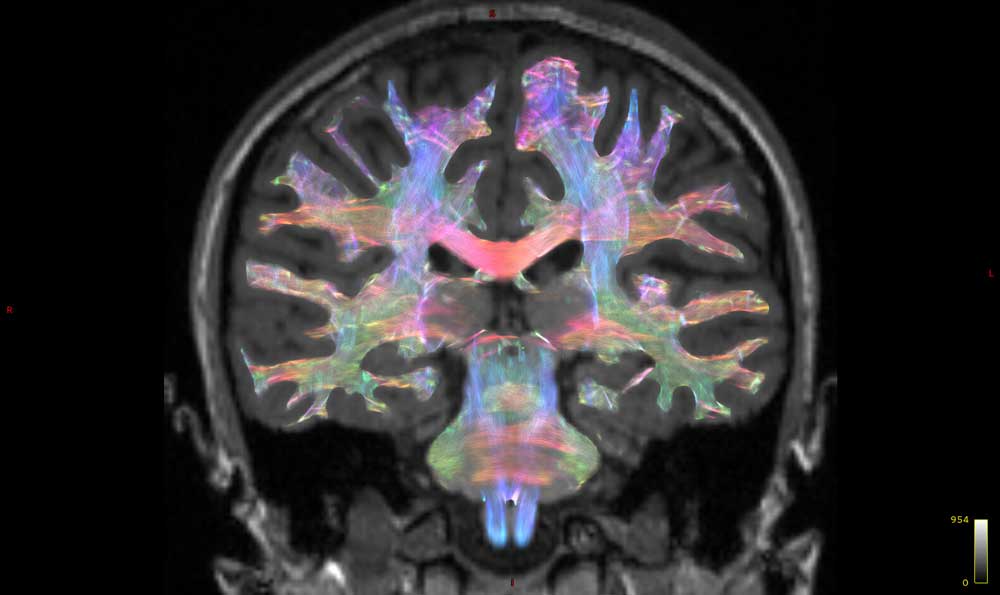
By Ritchie Williamson and Stuart Dickens
The first drug that can slow the rate of decline in Alzheimer’s patients has been found. The experimental drug, called lecanemab, is an antibody that targets the toxic clumps of amyloid protein associated with the mind-robbing disease. While these results are cause for celebration, there are still significant questions about its safety and rollout.
The full results of the phase 3 lecanemab drug trial (the final stage of testing in humans) have been published in the New England Journal of Medicine. The trial showed that patients receiving the drug had a 27% slower disease progression than those receiving a placebo after 18 months of treatment.
Overall, this is good news. For the first time, we have a potential treatment that has a demonstrated effect on both the symptoms and underlying pathology of Alzheimer’s disease. These results are a breakthrough in the search for treatments for this devastating disease and give a strong indication that the course of the disease can be altered.
But the results paint a mixed picture for those with Alzheimer’s. On one hand, this is the first drug that has been shown to have any effect on slowing the progression of the disease. On the other hand, the apparent effects are slight and the risks are not inconsiderable.
About 1,800 people with early-stage Alzheimer’s took part in the global trial. The participants were randomly assigned to receive either lecanemab or placebo intravenously every two weeks. The study was “double blind”, meaning neither the participants nor the researchers knew who was receiving the experimental drug and who was receiving the placebo until the end of the trial.
Throughout the study, the participants’ disease progression was tracked using the clinical dementia rating scale, which scores the patient on cognition and ability to live independently. The participants’ brains were also scanned for the two proteins commonly associated with Alzheimer’s disease: amyloid and tau.
Alzheimer’s scores in both groups worsened during the 18 months of the study, but the rate of decline was slower in those receiving the lecanemab. Also, the magnitude of the slowing, while statistically significant (not likely to be due to chance) was small – a 0.45 reduction on an 18-point scale.
Some experts are concerned that this effect may not be clinically meaningful. In a statement to the Science Media Centre, Rob Howard, professor of old age psychiatry at UCL, said that “none of the reported results, including the primary outcome, reached accepted levels of improvement to constitute a clinically meaningful treatment effect”.
The success of lecanemab was also measured by the amount of amyloid and tau protein in those on the experimental drug compared with those receiving the placebo infusion. The results showed a reduction in these proteins in those receiving lecanemab.
Indeed, the levels of brain amyloid were reduced to below the threshold needed for a positive Alzheimer’s diagnosis. However, markers of brain cell death were unaffected, indicating that amyloid in Alzheimer’s disease is just one mechanism in a complicated disease landscape.
Side-effects
About one in four participants (26.6%) in the lecanemab group experienced brain swelling or a bleed on the brain (which can be both minor or major). STAT, a medical news website, reported that a man died of a brain haemorrhage after receiving lecanemab, citing a possible interaction with his blood thinning medication.
A short while later, the journal Science reported a second death of a trial patient, also after receiving treatment for a stroke. However, the drug’s developer, Eisa, told Science: “All the available safety information indicates that lecanemab therapy is not associated with an increased risk of death overall or from any specific cause.”
Nevertheless, given the possibility that patients may be on the drug for the rest of their lives, more research is needed on safety and interactions with existing medications.
It’s also important to find out how long-lived the improvements in cognition are, and whether the drug continues to slow the rate of decline, or if the results plateau – or even decline.
It should be noted that only patients who had a sufficient level of amyloid detected in the brain or spinal fluid – which requires a PET brain scan or an invasive lumbar puncture – were eligible to take part in this phase 3 trial. In the UK, Alzheimer’s is currently diagnosed via an interview with a doctor. Dr Susan Kohlhaas, director of research at Alzheimer’s Research UK, says the NHS is not ready for a new era of dementia treatment.
We estimate that unless there are drastic changes in how people access specialist diagnostic tests for Alzheimer’s disease, only 2% of people eligible for drugs like lecanemab will be able to access them.
Restructuring NHS dementia services to provide routine and timely PET scans or lumbar punctures would be a costly and lengthy process.
Based on previous results, Eisai applied to the US drug regulator (the Food and Drug Administration) for accelerated approval of their drug. A decision is expected by January 6 2023. If accelerated approval is granted by the regulator, these latest results will probably support an application for full approval.
![]()
Ritchie Williamson is Director of research and Associate Professor in Therapeutics at the University of Bradford. Stuart Dickens
is a Post Doctoral Research Assistant at the University of Bradford, Britain.
































Leave a Reply